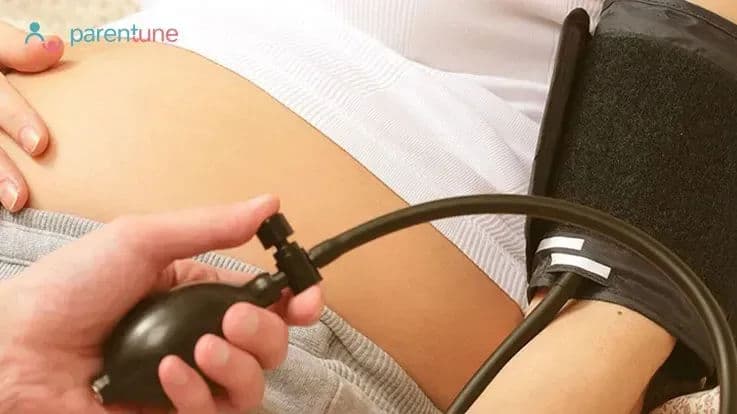high-risk-pregnancy
Gestational Hypertension - Pregnancy-Induced Hypertension

Published: 14/10/22
Updated: 14/10/22
Lata was five-months pregnant when for the first time she noticed swelling on her feet. She discussed this with her mother-in-law and mother. To her relief they told her that such swelling was common during pregnancy. But, with passing weeks her swelling ascended up to her knees. By the end of the seven month, she noticed her arms were swollen too. Now this was an alarming sign for her. She took an appointment and met her gynecologist. The gynecologist measured her blood pressure and found it to be disturbingly high. Read on to find out what Gestational Hypertension is and how it can be managed.
What Is Gestational Hypertension?
Pregnancy-Induced- Hypertension or PIH also known as Gestational Hypertension affects a large percentage of pregnant women. But, PIH should not be taken lightly as it may lead to Preeclampsia - a condition that may have serious side-effects. Also PIH may result in reduced amniotic fluid reaching the foetus, immature lung development in the foetus and, in extreme cases, IUD (Intrauterine death).
Gestational Hypertension can be classified into three categories depending upon the stage in pregnancy:
Also Read: Heating Pads During pregnancy: Is it Safe?
Who Is At Risk?
Management Of Gestational Hypertension
-
Gestational Hypertension:
it usually develops after 20 weeks of pregnancy and goes on till after a few week of delivery -
Chronic Hypertension:
common in women who already have BP issues even before conceiving and in case of early pregnancy (before 20 weeks). This may continue even after delivery -
Pre-eclampsia:
This is a serious condition where the BP rises really high (greater than 160/110 mm Hg)- Mothers for whom it is a first-time pregnancy
- Multiple gestations/high-risk pregnancies
- Pregnancy in a mother whose age is less than 20 or more than 40 years
- Past history of hypertension or renal disease
- Obesity in expecting mother
- Family history of hypertension or pre-eclampsia
- Placental abnormalities
- There is no specific treatment for PIH and management depends on how close you are to the due date.
- Your doctor may insist increased pre-natal checkups to closely monitor condition so as to identify pre-eclampsia and if the due date is close and the baby is well developed, might even suggest to plan the delivery as soon as possible
- But in case of mild hypertension or baby not being fully developed, doctor may recommend rest, and lying on the left side of the body so as to take weight of the baby off major blood vessels. Other dietary changes may include, less salt consumption and increase the intake of water
- In some cases, to control hypertension, the doctor may prescribe anti-hypertensive drugs. There are some anti-hypertensive drugs such as methyldopa, hydralazine and labetalol known to be safe and have no adverse effect on foetus and the mother’s health. Additionally, protein supplements may be given in case of reduced amniotic fluid
- Reduce intake of salt. Avoid table salt totally
- Drink at least 7 to 8 glasses of water a day
- Have a protein-rich diet
- Do regular exercise
- Avoid tea and coffee
Any physical change like swelling, breathlessness, profuse vomiting even after 20 weeks, or severe headache, if noticed should be discussed with doctor. These symptoms may indicate gestational hypertension. Take care. Happy pregnancy.
Did you find this blog on gestational hypertension, useful? Please share your thoughts with us in the comments section!
Be the first to support
Be the first to share

